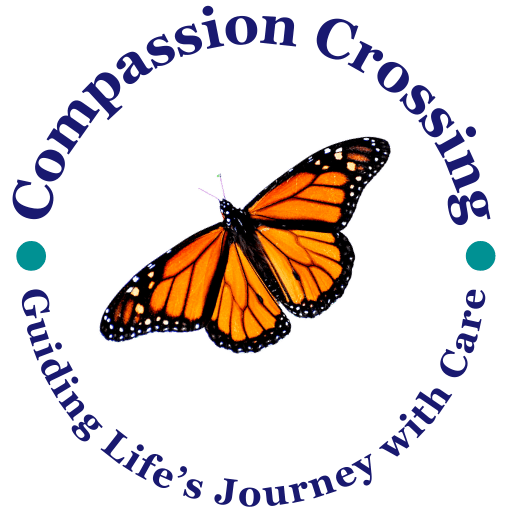Vision Changes Over the Stages of Dementia: A Guide for Families and Caregivers

Understanding vision changes in dementia is vital for caregivers. Learn how dementia affects vision and find practical tips to support your loved one, ensuring their comfort and safety.
Dementia with Lewy Bodies and Parkinson’s: A Guide for Families

Understanding Dementia with Lewy Bodies (DLB) and Parkinson's disease (PD) is crucial for providing the best care. This guide helps families know what to expect and how to support their loved ones through these challenging conditions.
Understanding Korsakoff Dementia: A Guide for Families

Navigate the challenges of Korsakoff Dementia with our comprehensive guide. Learn to recognize symptoms, understand stages, and provide compassionate care for your loved one.
Oral Ketamine in Palliative Care: A Promising Approach for Emotional and Psychological Distress

Discover how oral ketamine is emerging as a game-changer in palliative care, offering rapid relief for severe depression, anxiety, and emotional distress. This comprehensive guide explores its potential benefits, administration methods, and important considerations for patients and healthcare providers.
Understanding Esophageal Cancer: A Guide for Families
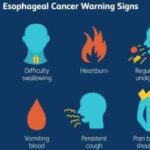
A compassionate guide for families navigating esophageal cancer. Understand its types, risk factors, symptoms, diagnosis, treatment options, and ways to provide care and support.
Terminal Prognosis vs. Diagnosis: What Families and Caregivers Need to Know
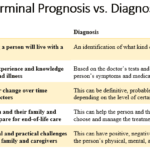
Learn the difference between a terminal prognosis and a diagnosis, and get practical tips and resources to help you and your loved one navigate this challenging time.
Empowering Caregivers: Effective Communication with Healthcare Providers
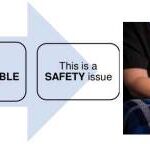
Discover how to use the CUS tool and Caring Feedback Model to advocate for your loved one's health. This guide empowers caregivers to communicate effectively with healthcare providers, ensuring their concerns are heard and addressed.
Comprehensive Approaches to Managing Hallucinations in Dementia Patients
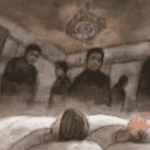
Explore comprehensive approaches to managing hallucinations in loved ones with dementia. This article covers pharmacological methods, focusing on Seroquel and non-drug strategies such as Naomi Feil's validation therapy. Learn how to validate feelings, de-escalate fear, and improve the quality of life for those experiencing cognitive impairment.
End of Life Wound Care
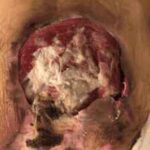
End-of-life wound care is crucial for patient comfort and dignity. This guide covers practical tips for preventing infection, managing symptoms, and supporting caregivers during this sensitive time. Learn how to make wound care a compassionate part of hospice and palliative care.
How to Identify End-Stage Parkinson’s for Hospice Admission
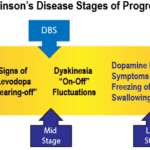
Identifying end-stage Parkinson's for hospice admission can be challenging. This article explores key criteria, including decline in function, weight loss, swallowing difficulties, and mobility issues. Learn how hospice professionals assess patients and utilize guidelines to ensure appropriate and timely hospice care for those with advanced Parkinson's disease.
Understanding Palliative Sedation: A Comprehensive Guide for Hospice Care
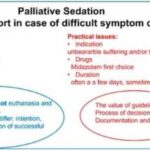
This guide covers the essentials of palliative sedation for hospice patients, including ethical dilemmas, timing, recommended medications, and monitoring effectiveness, ensuring comfort during the end-of-life journey.
Understanding Interstate Hospice Transfers: A Comprehensive Guide

Navigating interstate hospice transfers can be complex. This guide explores the process, challenges, and considerations for patients and families. Learn about Medicare regulations, coordination between hospice agencies, and how to ensure continuity of care when moving across state lines during end-of-life care.
How to Communicate Effectively with Healthcare Professionals as a Family Member of a Patient with a Terminal Illness
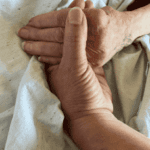
Learn how to communicate effectively with healthcare professionals when caring for a loved one with a terminal illness. Improve communication, advocacy, and coping skills to ensure your loved one receives the best care possible.
Bowel Management for the Terminally Ill: A Guide for Caregivers and Hospice Nurses

Managing bowel problems in terminally ill patients is crucial for their comfort and dignity. This guide offers practical tips for caregivers and hospice nurses to address constipation, diarrhea, bowel obstruction, and ascites, ensuring patients' better quality of life.
The Importance of a Formal Diagnosis for Dementia: A Comprehensive Guide
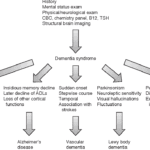
Getting a formal diagnosis of dementia is essential for understanding the condition, accessing appropriate treatments and support services, and ensuring the best possible care. This comprehensive guide explores the importance of a specific diagnosis in predicting patient needs for comfort and quality of life, as different types of dementia require distinct care approaches. Avoid the risks of a generic diagnosis and empower yourself with knowledge.
Strategies to Help Dementia Patients Use CPAP Overnight: A Caregiver’s Guide

Caregivers can find it challenging to ensure dementia patients wear their CPAPs overnight. This article offers practical tips and strategies to help caregivers ensure comfortable and uninterrupted CPAP use for their loved ones.
Compelling Hospice Nursing Narratives: Ensuring Continued Eligibility and Comprehensive Care

This guide covers how to write effective hospice nursing narratives, key documentation areas, and the importance of detailed and negative-based wording to support continued hospice eligibility.
Navigating the Complex World of Dementia and Seizures
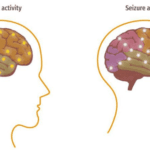
This article delves into the intricate relationship between dementia and seizures, offering insights on identification, safety protocols, and advocacy for caregivers.
Admission Nurse: Essential Questions to Ask During the Hospice Admission Visit

As a hospice admission nurse, asking the right questions is crucial for assessing patients' eligibility and providing compassionate care. This article explores critical questions to understand the patient's condition, decline timeline, hospitalizations, functional abilities, cognitive status, and comorbidities. By gathering this information, nurses can support informed decisions, tailor interventions, and ensure a "good death" for patients and families.
Understanding UTIs in Dementia Patients: A Guide for Caregivers
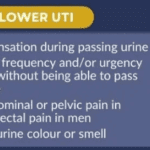
This comprehensive guide helps caregivers understand why urinary tract infections (UTIs) are prevalent in dementia patients. It provides practical advice on prevention, early detection, and effective treatment strategies. Empower yourself with the knowledge to provide the best care for your loved ones.
Understanding Your Hospice Care Team: A Guide for Patients and Families
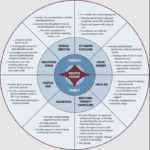
The end-of-life journey can be challenging and emotional for patients and their loved ones. A dedicated team of professionals provides comfort, support, and holistic care in hospice care. Each team member has a unique role, ensuring the patient's physical, emotional, and spiritual needs are met. Let's explore the roles of different hospice team members and how they contribute to your care journey.
Understanding Logopenic Primary Progressive Aphasia: A Guide for Families and Caregivers

This guide delves into Logopenic Primary Progressive Aphasia, a unique form of dementia. It provides crucial insights for family members and caregivers, helping them understand the condition and provide adequate care.
Methadone: A Compassionate Approach to Managing Terminal Pain
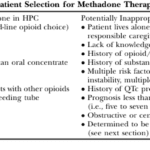
This article delves into the advantages of Methadone over Morphine for pain management in hospice settings. It covers dosage, titration, side effects, and scenarios where Methadone may not be the best choice. Ideal for hospice professionals and caregivers seeking compassionate pain relief options for the terminally ill.
Managing Aspiration Risks in Hospice Care: A Guide for Families
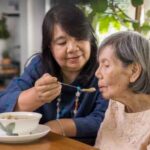
This article is crafted with heartfelt understanding and care, recognizing the challenges you face as caregivers and family members of terminally ill loved ones. Our goal is to empower you with knowledge and practical advice to manage the risk of aspiration pneumonia, a common yet often preventable complication in hospice care.
